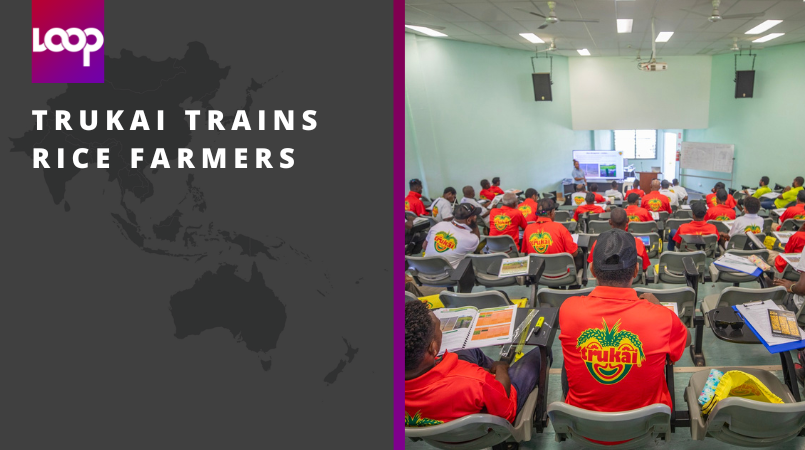
Trukai Industries Ltd is conducting Smart Farmer Training at the Pacific Adventist University, outside Port Moresby that has trained hundreds of local rice farmers across the country.
The program is ensuring there is an increase in local rice farming. Most households in Papua New Guinea rely on rice as a staple food, so when Trukai Industries Ltd reached out to the Pacific Adventist University (PAU), they gratefully approved of the partnership.
Representing the administration of PAU, the director of Corporate Services, Meck Kuk, spoke to this newsroom saying they agreed to work with the premier rice growers to teach farmers from the Southern region to iron out rice farming.
“The training started last Sunday and will end next week Friday, so the actual farmers are from the southern region, particularly from the Gulf, Milne Bay, Central provinces and roughly total to about 66 participants,” said Kuk.
He shared that 12 hectares of land were provided by PAU for the participating farmers to conduct their practical training.
Trukai Industries Rice development manager, Aina Davis is on the run to train the rice farmers from across the southern region, she shared that this would be the third batch of rice farmer training.
“In the Smart Farmer program what’s taken out from here is the certificate level one in irrigation farming. The idea is to train farmers to be smart in their farming,” said Davis.
She stated that most rice farmers in PNG work with dry land farming, which has a lot of issues and disadvantages. This causes farmers to give up and lose hope. This program is an initiative to help solve such issues and help the farmer to see another way of farming. The type of farming taught is irrigation farming.
“Trukai Industries is happy that the first and second batch farmers are seeing the benefits of this training. It is not for Trukai Industries, it is to develop the farmers. To help them and support them”, she said.
Four modules are taught at the training; 1. Introduction to rice, 2. Rice environment, 3. Crop cycle, 4. Basic economics of rice. The first component will be two weeks on campus with theory and practicals on the field.
After the training, they will go back home to implement what they have learned. This will lead to an assessment of their rice farming and will then be certified.
